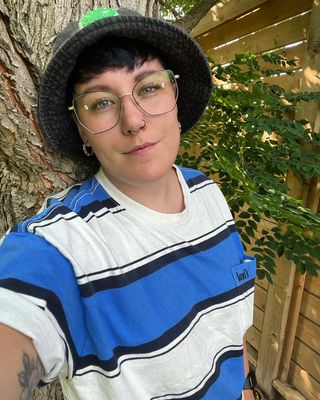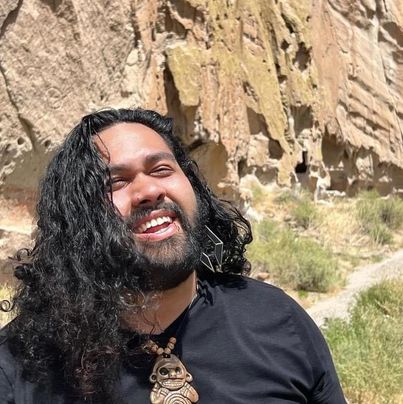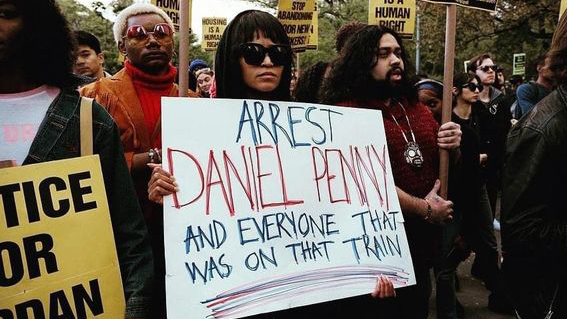Emma Anderson, a member of the autistic community, is interested in the connection between disability and fetal alcohol disorders (FASDs) within the Indigenous community.
Anderson, whose pronouns are she/they, has seen privilege play a large role in the lack of awareness for Indigenous people with disabilities.

Picture of Emma Anderson. Photo credit: Emma Anderson
“[My] autism was missed, but had I come from a family that was raised on the reserve, was very visibly Indigenous, it’s very likely that I could have received that [FASD] diagnosis but was shielded from it,” they said.
“I found it particularly interesting as a mixed-race person who comes from a financially privileged position, that FASDs were never even considered for me at any point in my life because my mother didn’t fit the stereotype of the women that we associate with FASDs,” Anderson said.
Celia Haig-Brown, a York University professor who studies decolonizing approaches to research, said that regarding families being raised on reserves, the supports available such as navigating a wheelchair on uneven levels of sidewalks or pavement can be difficult.
She said that disabilities in Indigenous communities cannot be separated from the history of residential schools.
“The pain of what could be intergenerational trauma can often lead to disabilities of various kinds, and both in terms of the people themselves, because of what happens through alcohol, drug abuse etc., but then that also can lead to problems with children, the birth of children,” Haig-Brown said.
Indigenous disability and trauma strategist, Vesper Moore, whose pronouns are he/they, said living in poverty increases the risk of traumatic experiences such as one’s whole life being shaped by the institution.

Vesper Moore in front of the Bandelier National Monument. Photo credit: Brenda Vezina
“We grew up in a place that is institutionalized—the metal door to my apartment had dents from bullet shots in it,” they said.
“Growing up in an environment like that and knowing that the police, the governments, are not designed for you and it’s designed very much against you, it is easy to believe that it is very unlikely you will live very long,” Moore said.
Moore was also hospitalized as a young adult and was later diagnosed with schizoaffective disorder, a condition they said disproportionately impacts Indigenous people, who are more likely to be given psychiatric diagnoses.
Moore said their experience in mental health facilities was negative.
“I was labelled immediately as non-compliant, as defiant when advocating for myself,” they said.
“We see situations like this around the world where often disabled folk and mad folk are in these circumstances and they’re put into these circumstances really because of ableism, a lack of understanding or not wanting to understand how society is not accessible to our bodies, minds in situations like the one I just described, how authoritarian government treats us as disposable,” they said.
Atreyu Lewis, who identifies as neurodivergent and whose pronouns are he/they, said this medical discrimination towards Indigenous people permeates the Canadian healthcare system. Lewis, a community worker, says that as Indigenous People, they experience this firsthand all the time.
“There’s a lot of medical discrimination within Canadian healthcare towards Indigenous peoples,” Lewis said. “I think a lot of Indigenous peoples are statistics largely when it comes to healthcare,”
Lewis cited Canada’s food guide, which was designed from experimentation with Indigenous children in residential schools in the 1940s as an example of how many health disparities have been caused by the government and a lack of accessibility.
“I’m a disabled person living in a world that doesn’t really like disabled people that much, and it’s a really hard thing for Indigenous people,” Lewis said.

